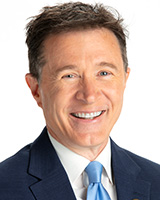Public health directors say Calif. prepared for Ebola; Nurse union disagrees

LOS ANGELES (KABC) -- In California, health officials say while there are no cases of Ebola in the state, health workers are preparing for anyone infected with the deadly disease, even if that person were to arrive on an airplane.
Dr. Kim-Farley of the L.A. County Department of Public Health said at a news conference Wednesday that locally all the right steps are being taken to prevent an Ebola outbreak, and that the missteps in the Dallas Ebola case are being closely analyzed here.
"We are prepared today," said Kim-Farley. "We are more prepared than we were yesterday, and we'll be more prepared tomorrow than we are today."
California's Public Health director says infection-control prevention specialists are working with hospitals all across the state.
"They're working very closely to help them implement their infection-control procedures and protocols," said Ron Chapman, director of the California Department of Public Health. "Those protocols and procedures are actually required by law to be in every licensed hospital in the state."
But despite those assurances, nurses in California continue to raise red flags. The California Nurses Association is complaining that their frontline members have received little to no Ebola training.
"The Nurses Association's stance is that we are not prepared," said Erin Bustillos, a California Nurses Association representative. "There have been no hands-on training for how to use personal protective equipment and we also don't have the personal protective equipment that's necessary really to protect ourselves from Ebola."
Ebola is a virus spread only through contact with bodily fluids and only after the patient is showing symptoms of the disease. This is something health officials say considerably drops the odds of an Ebola patient spreading the disease onboard a plane.
"A person is sitting in the back row and that person is sitting in the front row, that's much different than I'm sitting right next to them, which is much different than I shook hands with him, which is much different than we kissed each other when we left," said Dr. Robert Kim-Farley.
Public health officials say they're running drills at local hospitals. Part of the tests involve using what they call "stealth patients," people who pretend to have signs of Ebola to see how emergency-room personnel react.











